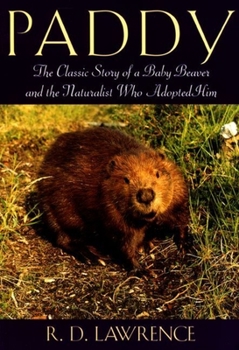Six Thousand Years of Bread: Its Holy and Unholy History
Select Format
Select Condition 
Book Overview
Give us this day our daily bread. From ancient Egypt to modern times, bread is the essential food, the symbol of fundamental well-being. H.E. Jacob takes readers through the history of this staple,... This description may be from another edition of this product.
Format:Paperback
Language:English
ISBN:1558215751
ISBN13:9781558215757
Release Date:January 1997
Publisher:Lyons Press
Length:400 Pages
Weight:1.24 lbs.
Dimensions:1.1" x 6.3" x 8.9"
Related Subjects
Baking Bread Cooking Cooking Cooking Education & Reference Customs & Traditions Essays Europe Germany HistoryCustomer Reviews
5 ratings
Bread as a catalyst for civilization
Published by Thriftbooks.com User , 19 years ago
I had always known bread was a staple of life. Rarely has a day gone by when I have not consumed it in one form or another. But I had no idea what an important role it played in the development of historical record. Jacob's poetic prose is sometimes tangential, but he delivers such fascinating tidbits that a reader cannot possibly mind the distraction. In explaining the development of bread in ancient Egypt, where it originated, he says: "The threshing floor is the battlefield between the tenacity of the stalk and men's hunger for flour." I recommend that you read this book curled up in a cozy chair with a cup of tea and a fresh, warm slice of rye. Your view of history is about to be changed.
Multi-faceted book-wow
Published by Thriftbooks.com User , 19 years ago
As a bread baker, I read this book anticipating information on bread through history. Who would have ever known that bread was so important. What a bonus it was learning about agriculture, religion, politics, literature , etc. and their connection to bread. It was facinating how the author found so many connections to bread, which was obviously more important in history than it is today-(referring to low-carb craze). The first 90 pages are a "tough-read", but it gets easier. I have purchased 6 more copies and am distributing them to friends. A very valuable book in my estimation. The deceased author (book published in 1944 and translated from German for the current edition)would have been quite surprised to see what has happened since 1944. If writing more chapters after 1944, he would certainly need a chapter on "chemical bread"-bread on the grocer's shelf that has a 30 day shelf life due to addition of anti-molding agents (sounds healthy doesn't it) requested by the grocery chains. It smells awful. Anyone that loves history, religion or agriculture would certainly find this book enlightening.
A Unique Perspective on World History
Published by Thriftbooks.com User , 21 years ago
I picked up a copy of Six Thousand Years of Bread in an anitque shop. It sat on my shelf for years. I finally read it. WOW! What a fascinating look into the history of civilization-all based on grain and bread. According to H.E. Jacob's convincing theories, the rise and fall of nations is all attributed to grain and bread. H.E. Jacob, a Nazi Germany escapee is an excellent writer and the book reads like an intriguing mystery novel that spans 6,000 years.It was published in 1944 and ends it's story during WWII. I would love to see it revised and expanded to include new discoveries about history and to bring it 's story into the 21st Century.
One of the most uniquely philosophical books i've ever read
Published by Thriftbooks.com User , 24 years ago
Jacob's Six Thousand Years of Bread is an amazing presentation of the relationship between bread and the history of Western Civilization. Even if it were just about bread's history, it would be an amazing book given its scope and knowledge. But it isn't REALLY about bread. It uses bread as an access point for discussing transformations of values and paradigms of knowledge through history. In a word, Jacobs presents a philosophical "genealogy" of Western Civilization through a discussion of the role of bread. Thus, Jacob's is a unique philosophical work. I can't think of any other book in philosophy or history that makes such a clear presentation of the causes and forces of historical transformation. In fact, the term "genealogy" I have used above has a specific sense that is relevant here. Coined by Nietzsche, "genealogy" is a strategy employed for a philosophical discussion of historical transformations of the sort Jacob discusses. But whether comparing Jacob to Nietzsche, Foucault, Derrida, Heidegger, or even Hegel and Kant, I can't think of a better example of a philosophical discussion of historical transformations of values and knowledge. As a bonus, the Jacob's method of using a history of bread to present this genealogy makes it far more approachable than most philosophical discussions. I can't recommend a book more highly. I might even use it as a recommended reading for students in my philosophy classes.
A fascinating way to view the history of the western world
Published by Thriftbooks.com User , 26 years ago
I bumped into Jacobs' book by accident while browsing the shelves in a library; what a joy to see it's been reissued! (The edition I found was dated 1943.) I have learned so much interesting history from this book; the Temple of Eleusis and its similarities to the life of Christ; the invention of the windmill; why the village hated the miller and Chaucer's Miller's Tale; on and on, there are fascinating things in each new thread he picks up.





